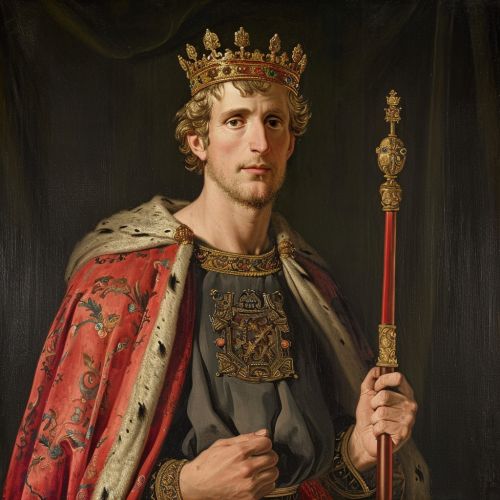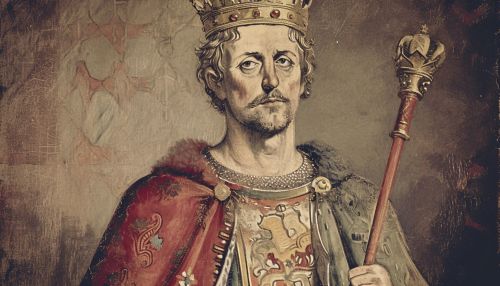Pepin the Short
Early Life
Pepin the Short, also known as Pepin III, was born in 714, the son of Charles Martel, a powerful Frankish statesman and military leader, and his wife, Chrotrud. He was a member of the Carolingian dynasty, which would later produce the famous Charlemagne. Pepin's nickname "the Short" (Pippin der Kurze in German) is believed to refer to his short height, although this is not definitively known.
Rise to Power
Pepin's rise to power began after the death of his father, Charles Martel, in 741. He and his brother Carloman inherited their father's position as Mayor of the Palace, effectively ruling the Frankish kingdom on behalf of the Merovingian kings. However, in 747, Carloman decided to retire to a monastery, leaving Pepin as the sole ruler.
In 751, with the support of the Pope and the Frankish nobles, Pepin deposed the last Merovingian king, Childeric III, and took the throne himself. This marked the end of the Merovingian dynasty and the beginning of the Carolingian dynasty. Pepin was anointed king by Saint Boniface and later crowned by Pope Stephen II, marking the first time a Pope had crossed the Alps.
Reign as King
Pepin's reign as king was marked by his efforts to expand and consolidate Frankish power. He waged successful wars against the Lombards in Italy, the Moors in Spain, and the Saxons and Bavarians in Germany. His victories against the Lombards in 754 and 756 led to the donation of a strip of land in central Italy to the Pope, known as the Donation of Pepin, which laid the foundation for the Papal States.
Pepin also implemented significant reforms in the administration and organization of the kingdom. He divided the kingdom into administrative regions known as counties, each governed by a count appointed by the king. This system allowed for more efficient governance and increased central control.
Death and Succession
Pepin died in 768 at the age of 54. His death led to a succession crisis, as he had two sons, Charlemagne and Carloman. According to Frankish custom, the kingdom was divided between the two sons. However, Carloman died unexpectedly in 771, leaving Charlemagne as the sole ruler. Charlemagne would go on to become one of the most famous kings in European history, known for his military conquests and cultural reforms.
Legacy
Pepin's legacy is significant. His ascension to the throne marked the beginning of the Carolingian dynasty, which would rule the Frankish kingdom and later the Holy Roman Empire for over 200 years. His reforms in governance laid the groundwork for the feudal system that would dominate medieval Europe. His donation to the Pope established the Papal States, a significant political entity in Italy until the 19th century.


